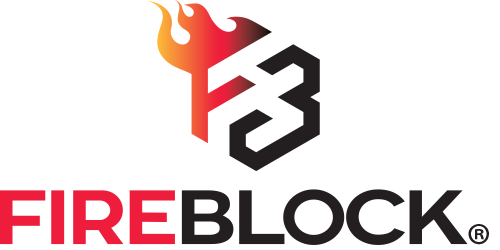
FIREBLOCK LITHIUM
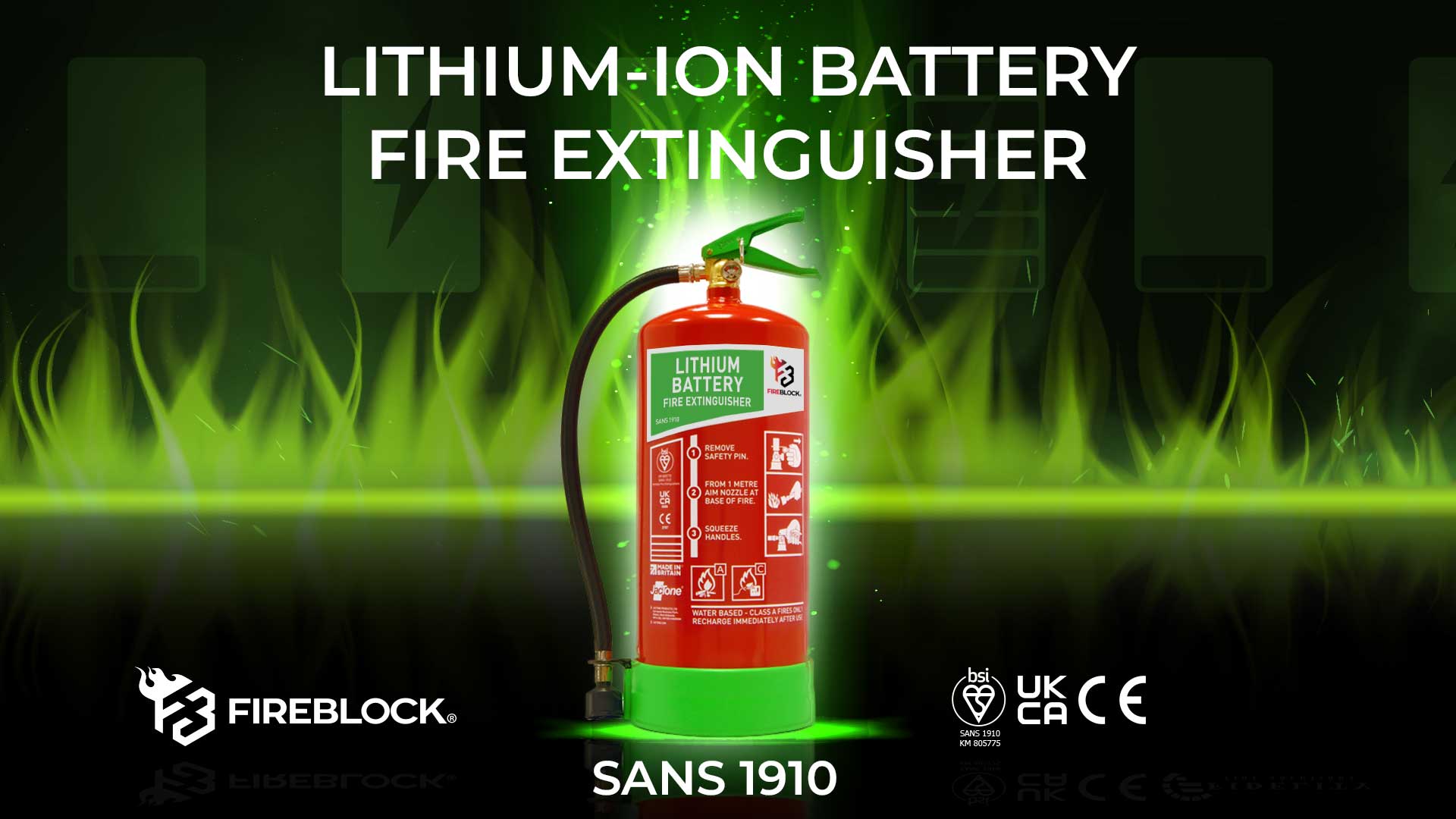
Lithium fires are extremely difficult to fight due to the chemical nature of the different batteries. Once they have caught alight the temperate rises rapidly and thermal runaway occurs. In addition to the release of flammable materials, is the associated risk of toxic smoke, which increases the hazard of the fire.

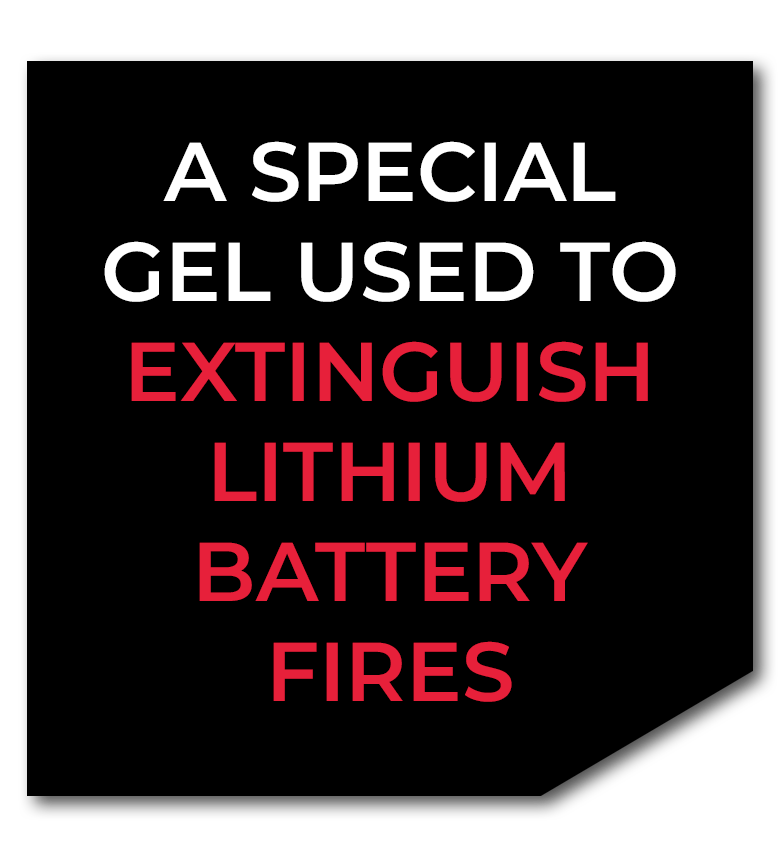
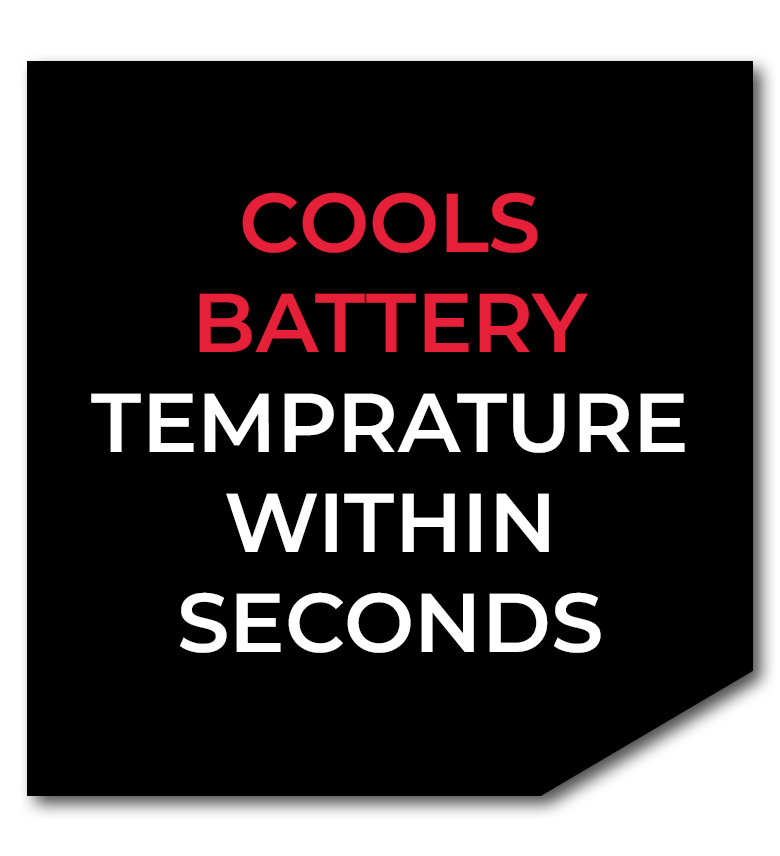



FIREBLOCK LITHIUM IS A UNIQUE AGENT WITH SUPERB PERFORMANCE FEATURES TO TACKLE LITHIUM BATTERY FIRES
- FIREBLOCK LITHIUM IS A SPECIALISED GEL THAT HAS BEEN DEVELOPED TO EXTINGUISH LITHIUM ION BATTERY FIRES regardless of cell type or chemical composition.
- FIREBLOCK LITHIUM has superior encapsulating abilities, covering and affixing to the battery, forming a protective layer, removing the heat, and separating the oxygen and fuel from each other.
- Runoff with FIREBLOCK LITHIUM is minimal, with less than 10% runoff of the amount sprayed on a flat surface
- FIREBLOCK LITHIUM acts as a “fireblock” between adjacent cells in a battery pack, preventing thermal propagation
- FIREBLOCK LITHIUM’s unique composition has a tremendously strong flame knockdown and cooling effect. It will reduce the temperature of a lithium-ion fire from 400° plus to below 60°
- FIREBLOCK LITHIUM stops thermal runaway, by cooling it down, extracting heat from the battery, and stopping the chemical reaction
- FIREBLOCK LITHIUM unique formula insulates the cells and prevents reignition
- FIREBLOCK LITHIUM IS non-toxic and biodegradable
- All extinguishers are manufactured in the UK, and carry CE, UKCA marks and BSI KITEMARK (EN-3 KM 57904)* (SANS1910 KM 805775)**
*Model: EGS9 & EGS6/**EGS9

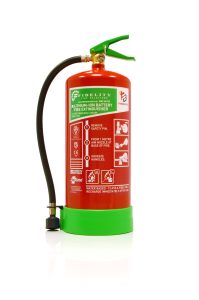
FIREBLOCK LITHIUM comes in the form of fire extinguishers which can be used on small to medium lithium battery fires
FREQUENTLY ASKED QUESTIONS
Frequently Asked Questions
It is a thick (high viscosity) green gel that is odourless.
No, it has a neutral pH level (see material data sheet attached) We recommend not using it with unlined aluminium
No, see the video where a hand is dipped in FIREBLOCK LITHIUM gel and a butane torch is held to the person’s hand. FIREBLOCK LITHIUM gel has superior cooling effects.
6l and 9l
It has a five-year shelf life
An approved extinguisher technician can service the extinguisher. The extinguisher is serviced annually, as per any other extinguisher and the gel is replaced every five years, and extinguishers are pressured tested.
It is certified to be stored and used between 5° and 60° Celsius
- 6l max a 1.5kWh – EV bikes, portable power stations, and large power tools
- 9l max a 5kWh – a solar inverter battery. (Generally found in households)
Use FIREBLOCK Lithium extinguisher as per usual fire extinguisher instructions. (Instruction label on extinguisher) – REMEMBER TO FILL AND SERVICE EXTINGUISHER IMMEDIALTY AFTER USE
After the fire has been extinguished and the smoke has dissipated, move the battery to an open area. Ideally, leave the gel on the extinguished battery for 24 hours, to ensure no re-ignition.
We have rigorously tested our product on a range of batteries, in a comprehensive series of test scenarios, on all cell types (cylindrical, prismatic, and pouch batteries) (see video links)
BSI – the practical testing has been completed and we are following the process of certification, which is close to completion. (Estimated end of March 2024).
Although the product is manufactured with deionized water, we do not recommend using it on electronics, unless the electronic device is on fire. (The product is certified to be used on electrical items).
If it is possible, in a safe manner, switch your mains off and the circuit breaker from your solar panels (suggested). Aim the nozzle at the battery from a safe distance and extinguish as per extinguisher instructions, until the flame is smothered. When safe, get close enough to the battery and spray enough gel into the cavity of the battery.
Spray the area off with water and/or use a cloth to clean the area.
Yes, but specialised equipment is required to enter the battery box.
Yes, it can be used on all class A fires (ordinary combustible materials for example; wood, paper, rubber, and many plastics)






